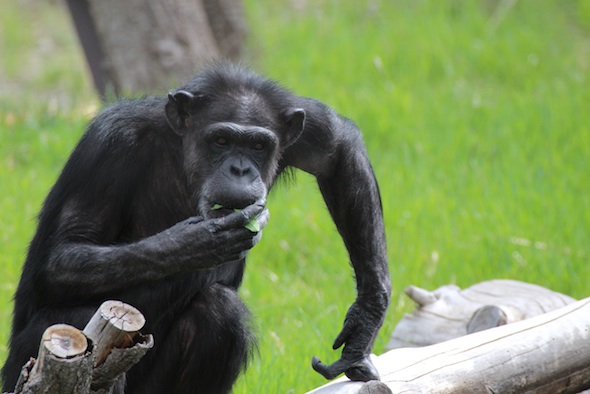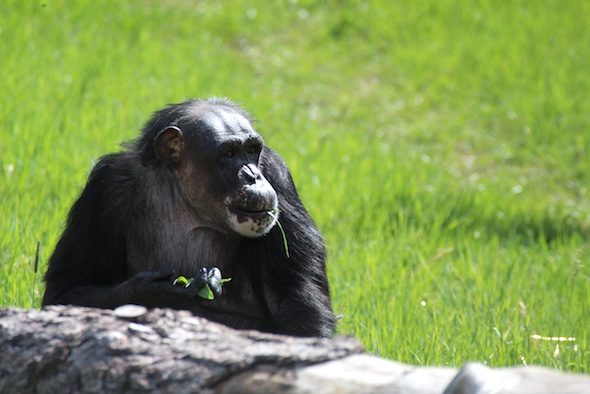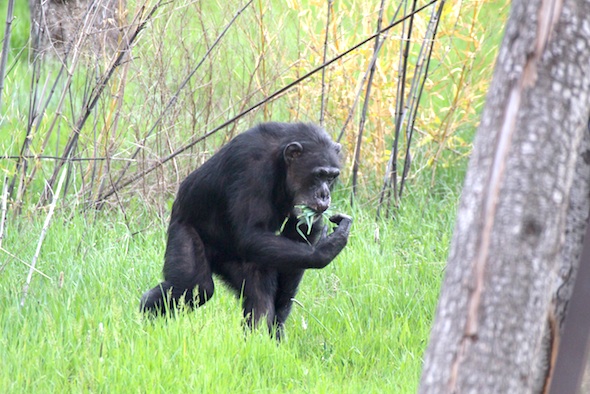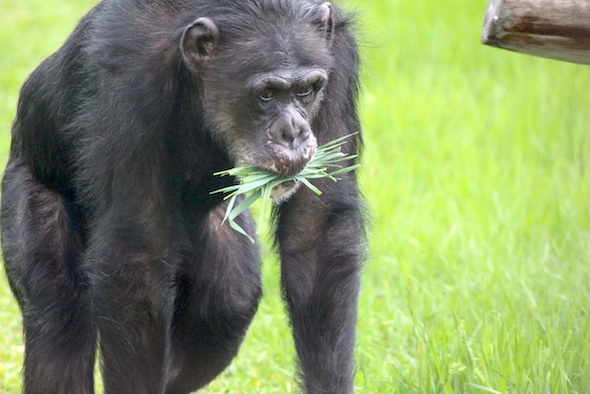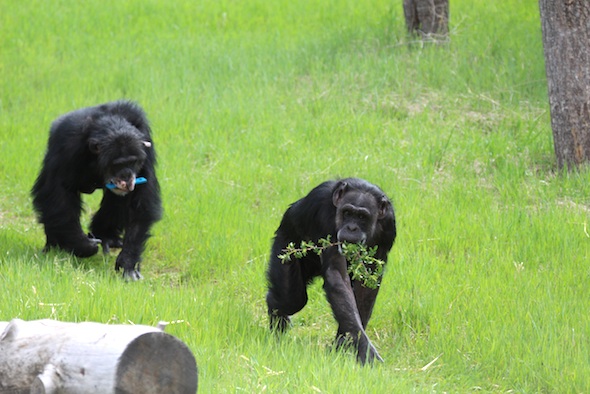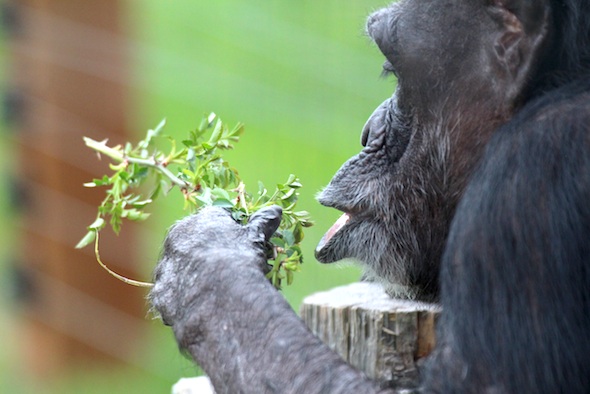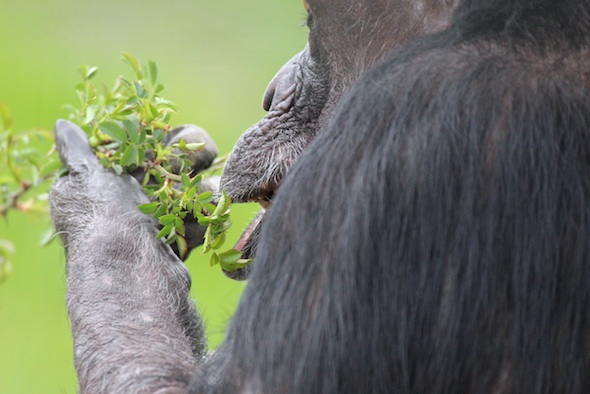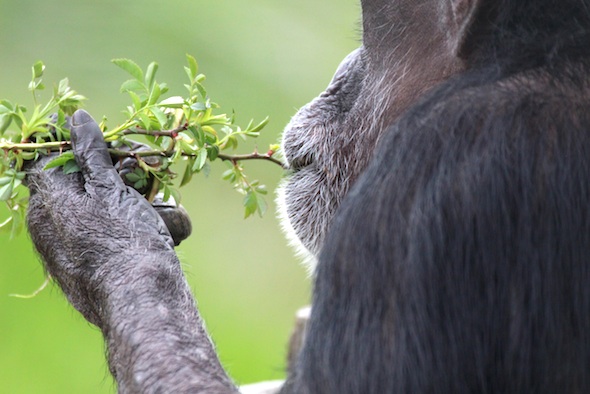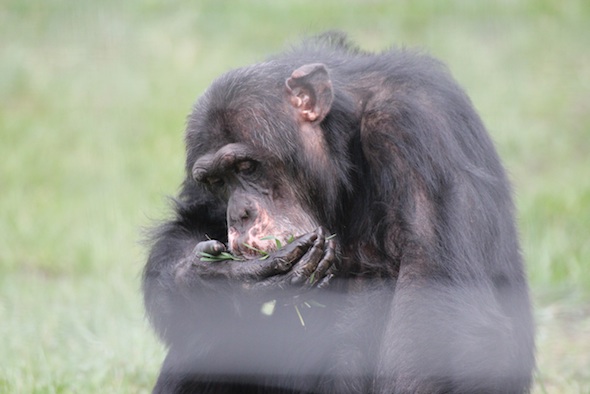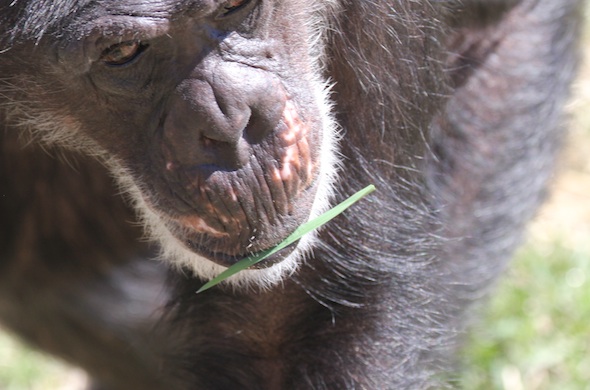The chimps spend a lot of time looking for food on their own this time of year.
Annie:
They love to eat grass, dandelion leaves, prickly lettuce, mustard, and many other wild plants, as well as the bamboo and fir trees that we have planted.
Negra:
Sometimes they sit down and eat them outdoors; other times they collect them and return to the greenhouse.
Missy:
Every once and a while they find something new that we haven’t seen them eat before, or that we didn’t even know was growing on the hill. And when they do, it sends us racing to the computer in a panic to figure out what they’re eating and to make sure it’s safe!
This morning, while the other chimps were munching on grass, Jody seems to have found herself some wild rose – a new one to us. She’s by far the most adventurous eater of the group and she will go to great lengths to eat small amounts of certain plants.
Wild chimps are known to self-medicate, a behavior known as zoopharmacognosy. Some swallow Aspilia leaves whole to treat parasites, others eat clay to ease an upset stomach. This type of behavior is most likely culturally acquired, and chimp culture is not something the Seven ever got to experience in the lab. And of course there is almost no overlap between the plants found across equatorial Africa and the plants found on Young’s Hill, so it’s doubtful that they have any type of innate knowledge of which particular plants to eat. But sometimes I’m struck not just by the type of plants they’re eating, but by the way in which they eat them. If you’re hungry and you want to eat grass, you might as well just stuff your face, as Burrito so happily demonstrates here:
But we occasionally see the chimps carefully swallowing a single blade of grass at a time, even carrying that single blade from the top of the hill back to the greenhouse. And sometimes, instead of chewing the grass first, they fold it up like an accordion and swallow it whole, like wild chimps do with Aspilia.
Is it possible for captive chimps to learn a basic form of self-medication on their own? The Seven are routinely screened for parasites, so it’s highly unlikely that they are knowingly treating a parasitic infection as their wild counterparts do. But as is the case with so much that fascinates us about chimps, where intelligence, instinct, curiosity, and culture are inextricably interwoven into complex patterns of behavior, it certainly leaves you wondering…
